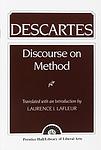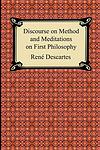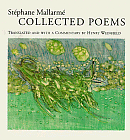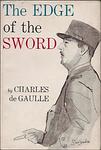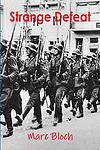The Greatest French "Humanities" Books of All Time
Click to learn how this list is calculated.
This list represents a comprehensive and trusted collection of the greatest books. Developed through a specialized algorithm, it brings together 300 'best of' book lists to form a definitive guide to the world's most acclaimed books. For those interested in how these books are chosen, additional details can be found on the rankings page.
Genres
The category of "Humanities" in books encompasses a wide range of subjects that explore the human experience and expression. This includes literature, philosophy, history, art, music, religion, and language. These books aim to deepen our understanding of the world and ourselves, and to explore the complexities of human culture and society. Through the study of humanities, readers can gain insight into the past, present, and future of humanity, and develop a greater appreciation for the diversity of human thought and expression.
Countries
Date Range
Reading Statistics
Click the button below to see how many of these books you've read!
Download
If you're interested in downloading this list as a CSV file for use in a spreadsheet application, you can easily do so by clicking the button below. Please note that to ensure a manageable file size and faster download, the CSV will include details for only the first 500 books.
Download-
1. Democracy in America by Alexis de Tocqueville
This influential book offers an in-depth analysis of the strengths and weaknesses of 19th century American democracy. The author, a French political thinker, provides a detailed examination of the democratic process and its impact on society, politics, and the economy. The work highlights the importance of civil society, local institutions, and the spirit of equality in ensuring the stability of democracy. It also delves into the dangers of majority tyranny, the potential for democratic despotism, and the critical role of religion and morality in sustaining a democratic nation.
-
2. Meditations on First Philosophy by Rene Descartes
"Meditations on First Philosophy" is a philosophical treatise that introduces the concept of radical doubt as a foundational element of knowledge. The book is known for the famous philosophical statement, "I think, therefore I am," which the author uses to establish the existence of the self as a necessary truth. The author also presents arguments for the existence of a benevolent God and the immortality of the soul, while examining the differences between the mind and the body, the nature of reality, and the limits of human understanding.
-
3. Discourse on Method by Rene Descartes
The book is a philosophical and autobiographical treatise that introduces a new form of scientific and philosophical method, which emphasizes on doubt and systematic questioning as the primary means to achieve knowledge. The author argues that by doubting everything, one can then rebuild knowledge, piece by piece, on a more solid foundation. This method is applied to a wide range of topics, including God's existence, the nature of the human mind and body, and the acquisition of knowledge.
-
4. La Bête humaine by Émile Zola
"La Bête humaine" is a psychological thriller set against the backdrop of the French railway system during the 19th century. The plot revolves around a railway worker who, despite being a seemingly ordinary man, harbors a dark, uncontrollable urge to kill. The narrative is a grim exploration of human nature, delving into themes of inherited violence, animalistic instincts, and the impact of industrialization on society. The novel is also filled with a variety of subplots involving jealousy, betrayal, and murder, all intricately tied to the characters' lives.
-
5. Collected Poems by Stéphane Mallarmé
"Collected Poems" is a compilation of poetic works by a renowned French poet. The book offers readers a deep exploration into the intricate world of symbolism and the power of language. The author's artistic use of words to create vivid imagery and evoke profound emotions is evident throughout the collection. His poems delve into themes of reality, dreams, and the interplay between the two, offering a unique perspective on the human experience.
-
6. The Edge of the Sword by Charles De Gaulle
"The Edge of the Sword" is a compelling exploration of the art of leadership and the nature of power. The author, a prominent military and political figure, delves into the essence of politics and the requirements of leadership, emphasizing the need for strength, courage, and an unwavering commitment to one's principles. The book also provides a unique insight into the author's own leadership style and his views on France's role in the world.
-
7. Strange Defeat by Marc Bloch
"Strange Defeat" is a wartime memoir written by a French historian who served as a soldier during World War II. In the book, the author critically analyzes the reasons behind the swift and shocking fall of France to Germany in 1940. The author attributes the defeat to the outdated strategies and poor leadership of the French military and government, and also highlights the social and political issues that plagued France at the time. The book is not only a personal account but also a profound critique of French society and its institutions.
Reading Statistics
Click the button below to see how many of these books you've read!
Download
If you're interested in downloading this list as a CSV file for use in a spreadsheet application, you can easily do so by clicking the button below. Please note that to ensure a manageable file size and faster download, the CSV will include details for only the first 500 books.
Download
